Show Notes
In this episode Claudia and Dan talk about that moment in her recovery where she "chose her world".
We discuss practical and psychological aspects of where we place our focus whilst chronically ill and some of the fascinating neuroscience behind the practice of visualisation.
Strategies, impacts and much more about shifting our focus from illness to health.
Timestamps
| Introduction | 0:00:00 |
| Podcast Disclaimer | 0:02:28 |
| Introduction to Claudia's 'choosing her world' | 0:03:11 |
| Claudia asks why it matters for recovery from chronic illness | 0:04:55 |
| Why did Claudia decide to 'change her world'? | 0:07:21 |
| Dan asks whether the new world might be more challenging - the loss and gains | 0:10:00 |
| Dan shares his experience of being validated by others' experience | 0:15:04 |
| Claudia talks about where the old world was leading her | 0:18:53 |
| Dan and Claudia discuss the impact of changing your world | 0:20:00 |
| Dan explains the double-edged sword of recovery focus | 0:22:35 |
| Adjusting to a shift in identity | 0:24:44 |
| Strategies to create a new identity | 0:28:07 |
| How focus changes our world | 0:30:14 |
| The physiological effects of using visualisation | 0:32:03 |
| Overcoming struggles with positive visualisations | 0:38:11 |
| Why positive thinking alone is unlikely to lead to recovery | 0:42:36 |
| How positive focus prevents recovery frustration | 0:43:24 |
| What holds us back from 'changing our world'? | 0:44:03 |
| Understanding what drives our behaviour/motivation | 0:46:27 |
| Anecdote about activity that is NOT low stress as expected | 0:48:29 |
| Final thoughts about choosing your world | 0:49:46 |
Transcript
Dan Neuffer: Today’s podcast is about choosing your world.
I’ve been doing recovery interviews for many years now. At the time of recording, it’s probably about seven or eight years, I think. As part of doing recovery interviews with people with ME/CFS, fibromyalgia, POTS, and multiple chemical sensitivities, I have many interviews where I have moments. I remember these distinct moments from many of these interviews that I’ve done where something important has come up – something interesting, something that feels special.
One of these interviews happened a few years ago with Claudia. If you’ve been listening to the podcast, you would know Claudia as a regular guest. That was when she talked about choosing her world. Hence, that’s the topic of our talk today.
I would like to welcome Claudia back to the podcast.
How are you doing, Claudia?
Claudia: I’m doing well, Dan. How are you today?
Dan: Good.
I know when I mentioned it to you, it was dear to your heart. You were quite excited about it because it meant a lot to you – that whole topic – didn’t it?
Claudia: Yes, it was a very powerful idea or notion for me. Somehow, intuitively, I just knew that this was a key to me recovering – or, at that time, attempting to recover.
Dan: I have to admit, it has been on my mind, and I have been thinking about it quite a bit because it’s something I see regularly with people – this issue coming up.
Claudia: Why do you think it matters? Why is it important in the recovery process?
Dan: Well, I think the first thing, obviously, many people at this stage will probably be listening going, “Well, what are we talking about?” because they may not have heard your interview. I will link the interview in the show notes.
For one, our focus determines what we see in terms of opportunities to take action. Our focus also determines what actions we take and what distractions we experience. From a simple practical point of view of engaging in the recovery process – or engaging in anything in life – I think focus is very important. I think that’s a big component of this “choosing your world” concept.
The other thing is there is probably multiple layers to this – and I think you will probably talk about some of your own layers when I ask you about this shortly – but there’s also the physiological effects. We’re talking about the direct impacts on our health. I think it needs a bit of context here. We’ve got to make it clear that, of course, we all know this is a real physical illness and you can’t just do positive thinking and make it magically go away – you know, choose your world to be healthy and it’ll be gone. I think everyone would have worked that one out by now, right?
Claudia: Yes.
Dan: However, because these illnesses – ME/CFS, fibromyalgia, POTS, multiple chemical sensitivities – because we’re talking about a neurological illness, the impacts of the mental imagery or mental focus become very real. If you reflect on our talk on neuroplasticity, focus will become an important element.
I think it’s two layers. It’s practical in terms of what we do. Secondly, it does have some direct physiological consequences. I’ll share some of the research on that afterwards.
Claudia: Great. Excellent.
Dan: Let’s start with why did this come to you because I think from memory – correct me if I’m wrong here – as you know, in the program, I talk about making a shift away from the illness world and I talk about changing your environment, changing reminders, changing your Facebook, changing everything, but I think you actually made this change before you came to that lesson. Is that right?
Claudia: I did, yes.
Dan: What motivated you?
Claudia: As you know, and anyone who is listening who has watched or listened to my recovery video will know, I was deeply involved in the advocacy community. And so, on a daily basis, I was immersed in that work, but I was also in conversation with other people who were sick with ME/CFS, fibromyalgia, POTS, et cetera. And so, that became my world. And then, I had a secondary world with healthy people.
I always felt this split – like there was a division in my psyche that I was divided. I really didn’t feel like I had a definition of who I was anymore, and that didn’t feel good. I felt like I really needed to redefine myself. “Who am I? What am I? Where do I want to go?”
I felt like being part of the advocacy community, on the one hand, gave me purpose, and purpose is positive and good. But, on the other hand, it also felt like I was being sucked into this vortex of illness all the time. I could feel that it wasn’t healthy for me – just always ruminating on the illness and the fact that there was no cure and what does my future look like. It was very depressing, honestly.
I was getting to the point where I felt like I couldn’t sustain that anymore, so I needed to pull away from that, and I wanted to pull away from connections with other sick people. I wanted to communicate with healthy people just to feel that other sense of connection with the other side of my own self.
When I did contemplate doing the recovery program, I realized it became even more important – that I really needed to shift at that point.
Dan: It coincided with the decision to enrol in the program?
Claudia: Yes, I believe it was a predecessor to the decision. When I did finally decide, “Yes, I am going to do this program,” before I committed to the program, I made sure that I had made the division or the split already.
Dan: If you’re leaving the sick world as you call it, I mean, you’re not in the healthy world, right?
Claudia: No.
Dan: You’re talking about connecting with people who want to do stuff. That’s kind of depressing. You’re talking about how it’s depressing to focus on the illness, but if you’re hanging out with people who are really well and have goals and aspirations, these are things that are taken away from us.
I remember it always used to feel depressing in the sense that I felt pushed down because these are things that I felt weren’t available to me. Being around people with their big goals and stuff while my goal is to get out of bed tomorrow. You know?
Claudia: Yes. For myself, I was surrounded by competitive athletes – my husband, my daughter, my entire friend base. All of them are Iron Men and whatever. That was my environment. And so, yes, it felt like I was constantly beaten up by the fact that I couldn’t participate or do those things.
But I think I also realized that focusing on the ill community was a detriment in its own way. And so, I needed to pull away from that. What I was going to fill it with, I wasn’t sure at that point. I just needed to pull away from that.
At that same time, I was making this decision to do your recovery program – the ANS Rewire Program. That’s when I realized, “If I pull away from that community, then I can associate with healthy people with the idea that, at some point, maybe I will be able to meld in with them at some level.” Of course, at that point, I was not secure in the idea that I was going to recover at all. I was extremely sceptical. I thought improvement.
Dan: Right. That’s a big step to take – the notion of what probably at the time felt like a bit of a pipe dream. If you recognize, look, I’ve got to just say it how it is, I think many of us, when we’re ill a long time, we just don’t think it’s going to happen. if that’s your view, you’re going to be still a sick person, but you’re going to lose that whole connection, then what you’re left with is nothing.
Claudia: Yes, it was a giant leap off of a cliff, and I didn’t know if a net would appear. That was what it felt like, but I had to do it. I just felt this urge. I felt this need to just try. I knew I had to try, and in order to put 100 percent into this recovery, I knew I had to sever that connection, so I did.
Dan: What did you feel you lost when you severed that connection?
Claudia: I felt like I lost this connection with other people who could relate – this relatable community – because healthy people can never relate to our experience no matter how hard they try or how much they love you. They just can’t. I felt like I lost that a little bit.
I felt like I may have lost the ability to step back in for sure because the whole idea of what I was doing was so controversial and I had built that community up – my Facebook group. I had built that from the ground up. And so, it was extremely important.
I also was concerned about what would happen to it if I stepped away. Is it going to keep going? For the people who depended on that, what are they going to do if I’m not there? Thankfully, the people who stepped in did an excellent job of continuing that, and it still goes on. But those were my concerns at the time.
Dan: How many years had you been building up that Facebook group?
Claudia: About seven or eight years probably.
Dan: There were thousands of people in there, right?
Claudia: Yes, so it was a long time. it was a lot of work.
My whole adult life, I’ve been good at changing what I do. I’ve had several careers. I’ve changed a lot. I embrace change. And so, maybe that was a personality characteristic that helped me jump off the cliff. I don’t know. I just felt like there was a reason that I had to do it. I can’t put a finger on it, really.
Dan: Yes, very interesting.
You know, I see this comes up a lot. I didn’t have an illness community. I didn’t know anyone else with the illness. I remember reading an article by Cort Johnson of Health Rising. I was looking for symptoms and this and that to see if there’s a diagnosis. I don’t know. I was still sceptical because I’ve got something really wrong with me. Is it a virus or something like this?
And then, I came across an article where he described his life in great detail. I don’t remember where it was – somewhere on the internet. I didn’t know who he was, but I just came across this article. I remember it was like 3:00 in the morning. I hadn’t been sleeping. You know what it’s like. You have these moments of desperation. You think you’re going to find something. I’m looking and I thought, “Well, maybe I’ll have a look to see.” I found this article. He described his experience in great detail.
Claudia: It’s emotional – that connection when you first experience that someone else is actually living through what you’re living through, and you think you’re the only person in the entire world that’s having this.
Dan: Yes, absolutely.
Seeing all of this emotion come up now, I guess I’ve never really spoken about it myself. I was never part of it. I never really had this experience. I was just on my own. I saw this article and it was like, “Oh, my god, this is me!” with the detail of his experiences and the symptoms. You go through years where people just don’t understand you and everyone rolls their eyes. You think you must be crazy. “How can anyone have so many different weird symptoms?” Then you read something or meet someone and it’s the same. You’re like, “Oh, my goodness! I’m not crazy!” That was really my experience.
Actually, it was before I started writing the book when I had formed my hypothesis for the pathogenesis of the illness, and I started recovering that suddenly I met all these people with CFS. It was really weird. I hadn’t met anyone in the six years at the time. Then, I remember in one month I had met four or five people. It was so weird.
Claudia: Oh, my gosh.
Dan: Choosing your world maybe. I don’t know what that is.
Claudia: Well, there you go, right?
Dan: I don’t know. I can’t explain that. It was very odd.
Interestingly, I remember distinctly talking with one lady. She was the same. I told her about this possibility of recovery and all this. She was like, “Oh, my god!” She grabbed me and she ran me out to the car, grabbed her phone, and called her mum up. She goes, “Here’s this guy. Talk to him.”
I thought she was excited about this idea of recovering and the possibility. I mean, I wasn’t really fully convinced, but I had made tremendous progress at this stage, but for her, it was actually just about the fact that she wanted to put me on the phone. She was like, “Go on. Talk to him. Talk to him!” It’s like she wanted me to explain to her mum that she wasn’t crazy and that there was someone else who had all these symptoms.
Claudia: Oh, my gosh. Just relate to me.
Dan: Yes. Also, I was shocked that the whole message that I was trying to give her – that I think I’m getting better, and I think there’s a way to recover – it was like she had no interest.
Claudia: It was lost.
Dan: She didn’t hear it. It was completely lost. All she wanted to do is go, “See! Look, I’m not crazy!”
I can only imagine what it must be like to be connected to a community like that and then to let go of that. I see many people really struggle with that.
Claudia: Yes.
For me, I felt like I was on a train to nowhere with advocacy. The deeper I got into it, the more I realized the same actions were happening decade after decade after decade. We were saying the same words. We were writing the same papers, going to the same meetings, and nothing was changing. That was so frustrating to me. I think that played a role in my decision to leave it as well.
I felt like I could do more good by working with patients by helping other people be positive and find other parts of life where they could find joy and just helping people with coping mechanisms. I felt like that was a better use of my time and energy than what was happening in advocacy. There were multiple reasons why I felt this need to walk away from that.
Dan: I guess it coincided with your shift to do this recovery program.
Did you feel it had other impacts – leaving this world and choosing the new world? I mean, dynamically, in your everyday life or in your recovery focus, how else did it impact?
Claudia: It definitely did because, associating with sick people all the time, internally, I thought about being sick all the time, and that was not healthy for me. And so, shifting away from that gave me space. I opened up. I was meditating at the time as well. I could feel it.
I could feel this change – this spaciousness in me opening up that had been filled with illness thoughts and illness focus. And so, it helped me move away from that a little bit. I could go outside and focus on nature more clearly and do the dishes or eat a meal without thinking or symptom checking or body scanning. I was just overwhelmed with that before.
Dan: It is because, you know, the illness becomes all-encompassing. It’s like our life shrinks and our focus on the illness grows until there’s nothing left except the illness. The little circle of illness grows, the outer circle of your whole life shrinks, and then there’s nothing much left.
Claudia: Yes.
Dan: Because being ill affects every area of your life and your ability to do anything.
It’s easy to become a bit cynical and say, “Well, how am I going to focus on something else? What am I going to focus on? Am I going to focus on my triathlons? Am I going to focus on my social things?” but the truth is there are other things to focus on.
The problem is that, when the illness focus becomes so big, we don’t see those opportunities because there’s only so much space in our head. Even without brain fog, there are only so many things that occupy our focus, our energy, and our attention. I think this applies not just to illness but also to recovery.
For people who are in the program, I want you to recognize that this is one of the reasons why I have to access. Besides not being able to promise some life some access because what happens if we get hit by a meteor in Australia? My program will probably run for a while, and I can guarantee two years, but who knows?
Claudia: Right.
Dan: Really, it’s also about the fact that there comes a point where, when people are at the later stages of recovery, I want them to move away from recovering because this focus on recovery is really kind of the same as the focus on illness.
Claudia: Yes, it is.
Dan: You need to connect to just being a well person. Once you’re 80 or 90 percent, forget about not just the illness but forget about getting well. Just focus on your life.
Claudia: I remember you saying that to me. “Go live your life.”
Dan: You talked about doing something like this – some positive advocacy and being involved and there you are – but, at the time, I think it was at least two years, I kept fobbing you off. I think it might be nice for me to help other people or something like this, but I thought, “No. For you, this is not good.”
Claudia: And that was the best thing you could have ever said to me because I needed those two years to move away and just engage in life again.
Dan: It’s about building the connection and confidence as being a well person because, at first, even if we are well, we don’t necessarily associate with that identity. Would you say?
Claudia: Definitely.
For myself, my recovery on the physical level was so fast. It was three months in the program. My brain did not have time to catch up. I was in shock and awe that this had happened. I couldn’t grasp what had occurred. I would say it took almost a year – maybe even longer – before I could actually really say the words – “I am recovered” – and that was difficult.
Dan: It’s interesting that you say that because I’ve seen other people have what I call “miracle cures” – people who have very fast recovery with the program – three, four, five, six months. Many of them feel quite uncomfortable because all kinds of stuff come up. They feel uncomfortable.
It’s a bit like post-COVID. Suddenly, you have to go out and be in restaurants again and meet with people and people feel uncomfortable. It’s a bit like that when you recover. If it happens very quickly, you don’t have any time to adjust mentally.
I took longer to recover because, of course, I didn’t have all the resources that you had. It took me 18 months to recover. Many people take longer also in the program – 12 months or 18 months or however long. And yet, once I was well, even after a period of 18 months, it still probably took me another year.
To be honest, for me, maybe even longer because, even though I wasn’t ill as long as you were, I don’t know. I know you didn’t think recovery was possible, but I was so militant about this conclusion. I stopped even trying or looking for things because it didn’t go anywhere. I think it took me maybe one or two years to actually connect with the new version of myself.
Claudia: You know, I was thinking also, another thing that occurred when I was making that shift has to do with identity. While I was sick, I had the identity of an ill person minus everything else that created Claudia. All those other things were stripped away. I felt this emptiness – this void, all the limitations.
When I was going through this idea that I need to make this shift and I need to move away from the illness community and the advocacy community, at the same time, I was thinking, “Who am I? What is deep down inside Claudia that remains? What’s still there? There has to be some core little seed left.”
That was something I did in my meditations. “What’s in there?” I started remembering things – beliefs, values, notions. I can’t even put a word to them. It was just me – my core true self from when I was a little girl. It started welling up. I felt like I can latch onto that. That’s still there.
Dan: It’s amazing how you did this before you recovered. It took me a long time to do it after. When you said, “What was left inside me,” the only words that came to my mind was “bitter” and “twisted” because that’s pretty much how I felt. It’s interesting.
Look, I just want to point out too that, when you remove that focus and get rid of that illness world, you get this empty space, and you need to fill it with something. While so many things are not available to you whilst you’re chronically ill, when you make the space, you will have to find something.
Some people just find negative thoughts and feel depressed, but if you make the choice to say, “I’m going to find something positive. I’m going to find something I can enjoy; something I can get a little bit passionate about; something that, when I go to lie down at night, I can go to that happy place.” It may not be a sport, but it may be some other past time.
It could be photography of animals or something – some kind of activity that you can do with your level of wellness. It may be something that you reconnect to from your childhood or early in life. It may be something completely new. But I really say it’s so important that, when you choose your world, you fill that new world with something because, if you don’t do that, you’ll probably fill it with some other kind of misery.
Claudia: Right.
Nature was a big thing for me at that time because I physically couldn’t do a lot. I started taking a camera outside in my yard and I started taking pictures of things – leaves, birds, whatever passed in front of me because I couldn’t really move around. I got lost in it.
Rather than being inside myself and thinking about my symptoms and scanning my body, suddenly, I was inside a flower, and I would get lost in a flower for 30 minutes. It was very meditative. That was part of that process for me as well.
Dan: Awesome.
Look, I just want to point out this whole thing about our focus. I’m sure you’ve experienced this – to anyone who’s listening – where maybe one day you were looking at buying a car or a friend buys a car and you go, “Wow! What is this? I’ve never seen this in my life. This is weird.” They go, “No, it’s been around for years.” You’re like, “Really? I’ve never seen this car.” Immediately afterwards, you see this car everywhere. You’re like, “How could I not have ever seen this car? It’s literally everywhere.”
This is what happens when we focus on something. It’s the same with illness. You focus on illness and suddenly you see it everywhere. Your brain has to prioritize. There are lots of things going in. We call these things filters. When people talk about it in neurology or psychology, they talk about filtering things because there’s all this information coming into your brain. You filter most of it out. There are specks that your brain thinks are important so it will focus on those.
When we focus on where we want to go, not only do we see things, but actually we see the opportunity for things. “This is something maybe I could do to help make it better. This is an activity I might be able to do that I could enjoy.” Before, we’re so closed off to that, it’s in one ear and out the other because you automatically dismiss that you can’t do anything. You don’t even hear it.
Claudia: Yes.
Dan: I spoke a little bit about the physiological effects. It’s interesting. There has been some research. I’ll link to some of these interesting papers in the show notes. There are lots of papers. If you do a good search, you can get quite involved.
One of the interesting things is that, for many years now, they’ve looked at, for instance, stroke rehabilitation. They’ve looked at the impact of imagining that we are doing something physiological – like being able to walk normally when you are limping or something like this.
There’s been a lot of interest, and it’s not all definitive. You might grab a piece of research that will say, “Look, this works,” then you look at other pieces of research that say, “Well, this needs more investigation.” It’s just something that does help.
But, actually, there’s one noted study that I saw that really looked into the difference. Why do some people benefit more from these visualizations? What it really seems to come down to is this whole idea of focus. You probably remember me saying how essential it is for neuroplasticity that we have a strong focus.
In those studies, they talked about whether people are even able to imagine things. If I were to say to you, “Can you just bring up an image now? I want you to vividly bring up an image of an animal – specifically, a Tasmanian devil.”
Claudia: A what? I’m not familiar.
Dan: Can you do it?
Claudia: No, I’m not familiar with what that looks like. No, I’m not capable.
Dan: You can’t. When somebody is not capable, it’s going to have a different possibility and a different outcome. It’s not just whether you know about something because, obviously, not all people but most people would know about the things that they’re trying to achieve because they probably were in a previous time where they were able to do that, but not everyone can visualize the same way.
Claudia: Yes.
Dan: Some of the visualizations in the research are not about actually visualizing in the sense of seeing it and practicing those mental exercises but actually about visualizing doing it.
Claudia: It’s almost like wearing Google Lenses in a digital game.
Dan: That’s exactly right.
Claudia: You’re looking out of your eyes, seeing your own body manoeuvring and doing the action.
Dan: Yes. Well, actually, that’s a very interesting thing to say because, in some of the studies, they have actually used virtual reality to help foster this idea of helping people visualize, and they found that it actually improved their ability to train the nervous system and effect neuroplasticity so that they could improve their walking or whatever it was.
But when we’re talking about visualization, we’re talking about imagining moving your arms. That doesn’t mean that you look at your arms, but you know there’s a feeling. Obviously, when you move your fingers, there’s a feeling. They looked at one study where you literally imagine engaging the fingers. It’s different than seeing the fingers move. It’s a kinaesthetic thing.
They looked at the areas in the brain on these functional MRIs that showed that there was a difference and how it corresponds to actual movement. There are all kinds of evidence out there that shows when we’re seeking to effect neuroplasticity that these visualizations actually directly impact the nervous system.
Claudia: That all came up in my recent training in hypnotherapy and the importance of trying to engage a person’s perceptions – all of the perceptions – the visual, the sense of smell, the sense of touch. You have to engage all of them because you don’t know what type of learner a person is and that will affect how they can imagine something.
Dan: Absolutely.
Now, obviously, in relation to the focus on neuroplasticity and the ANS Rewire Program for people listening, that would certainly make a whole lot more sense why we need to choose our world and why I talk about this shift in identity.
We talk about physiological, psychological, physical, and all kinds of strategies to help us coax and train the nervous system to behave normally so that it doesn’t create these symptoms anymore. This is really just another way to train the nervous system. It’s to have that imagination and feeling association, if you like. This is where I think sometimes people get slowed down a little bit because they get so anchored in that illness identity because, well, we’re ill. It’s not like it’s imagined, right?
Claudia: Right. This is real.
Dan: We have that identity because it makes sense. That’s how it is. And so, shifting from that is really important as we recover. If you can do it before you recover, that could be extremely helpful.
Claudia: Yes.
You talked about people getting hung up at this stage. I’ve had people mention that to me – that they feel this conflict when they’re trying to visualize being healthy or imagine. Creating that imagery, they feel like they’re lying to themselves and then they get caught up in that. “It’s not true, but I have to try, right?”
What would you say to someone who’s facing that right now?
Dan: Well, the first thing I would say is you are right. You are lying to yourself, but let’s take a step back from what we’re doing here.
The purpose of this is to try and help you move forward. We talked about the two layers – there’s the neurological rehabilitation and then there’s also whatever you focus on in life you can move towards more easily. I’m not trying to fluff that up from some sort of metaphysical point of view.
I’m just saying it’s an absolute reality that what I focus on, I will be able to move towards more effectively. I will see opportunities that present themselves. I will be able to take action. It will just pass you by lots of little times. The little actions and the little adjustments in your life perhaps are even more powerful than the big things that you do because there are so many of them. They are pervasive.
Yes, it is true that we are lying to ourselves, but remember that most of us lie to ourselves most of our lives. Seriously, just look at your friends, look at your family. How many of them are delusional? “I am the smartest.” “I am the stupidest.” “I’m the prettiest.” “I’m the ugliest.” “I am this. I am that.” “I am the best.” “I am the worst.” This is not based on reality.
Claudia: Right. Most of the thoughts that pop into our heads are not real.
Dan: They are not real. People have all kinds of ways that they have images of themselves in relation to the rest of the world. Let’s face it. We question these quite strongly and we know that these are not true with most people and yet they latch onto them.
Chances are you are already lying to yourself. If you’re going to keep lying, you might as well do it for something useful.
Claudia: Well, now, on the other side of all of this, I have more knowledge through this training I’ve gone through with hypnotherapy. I understand how the subconscious mind works. I understand that it’s not temporal. It doesn’t understand time.
When you want to create an intention that you want to plant into the subconscious mind, you want to do it as if it’s already happened. This is a very valuable thing if you are going through recovery. You want to make the statement as though it’s already occurred and in the positive. “I am a healthy person. I am capable of walking to the mailbox.” Small things. “I am capable of getting up off the couch and getting my breakfast.” Very small steps.
Dan: Absolutely. This is common in psychology and hypnotherapy because of what we said. It moves you towards that. It brings your body into the state, and you will take advantage of all the opportunities to bring that about because it is incongruent.
Claudia: Right.
Dan: You’re bringing it into your mind. “Oh!” Let’s say I’m not a smoker. “I’m not a smoker.” And then, you go to pick up a cigarette. It’s like, “This doesn’t fit.” The brain doesn’t like it when things don’t fit, but it’s lying to say you’re not a smoker because you just had a smoke two hours ago.
Therefore, it’s incongruent, and this incongruence needs to be resolved.
Claudia: Right.
Dan: By continuously being congruent, if you focus on what you want your outcome to be, the behaviour for something like smoking or the behaviour of the nervous system has to adjust.
Claudia: Right, and that’s when you build a new groove, right?
Dan: That’s when you build a new groove.
Now, it’s not as simple as simply saying, “I’m going to positive visualize and positive think. Therefore, I’m just going to build a new groove,” because the illness is complex, and it’s got all kinds of physiological and perhaps even psychological things going on in your life that trigger your nervous system.
Like I said, positive thinking alone is probably not going to do it but given the fact that we’re talking about how useful this is in a stroke rehabilitation or somebody with other physical disabilities, clearly, we can see that there’s real science behind this. This isn’t just wishful thinking.
Claudia: It’s a piece of the puzzle – like every other piece you’ve talked about.
Dan: That’s right.
More so than it just helping you, not doing it may be holding you back.
Claudia: Yes, good point.
Dan: That’s really been the biggest effect that I’ve seen. It’s difficult. Unless we do a proper scientific study, we can’t say how much it’s going to help you, and I can’t say. I suspect that that’s going to have a significant impact because it fits with everything else that we do in the program, but I can definitely say that it holds people back.
Before we finish up today, I think this question you asked probably needs to be explored a little bit. “What do we say to people when they feel like it’s a lie?” Ask yourself. What else is it that holds us back from making that shift? I think a lot of it has to do with fear – a lack of confidence and fear that we are going to be almost abandoned.
Claudia: Yes.
Dan: Because you’ve got this connection with people. You’ve got this social connection. You’ve got all of this.
Claudia: You have defined yourself this way. This is your definition of “me.”
Dan: It’s your life, so if you lose this—
Claudia: Then what?
Dan: Yes.
Claudia: That was my description of jumping off the cliff without the net. Who am I going to be when I jump off? I don’t know.
Dan: What do you think is key to help people let go of this other world and to shift? I don’t want to take away from the power of simply “just do it.” Sometimes, there is really no other way than to take that leap, but if we can recognize maybe some of the things that are holding us back, how do you think we might be able to make that transition easier?
Claudia: You mentioned the word “fear” and I think a lot of obstacles and blocks that come up during recovery, I considered those resistance when I was going through that process. I recognized, “That’s resistance. That’s based in fear. What am I afraid of?”
There’s a lot of digging down that has to occur. There’s a lot of honesty with one’s self that has to occur. Those to me were the most difficult parts of recovery – really drudging through that mud and being honest with myself about the truths that were there and then leaning into them. You have to lean into that and not push it down anymore.
Dan: Yes, see how it feels.
Claudia: Yes.
Dan: I think this is really a great point you’re making.
In the coaching that I do, this comes up where I talk about the fact that, when we talk about any sort of behaviour, let’s say we have a behaviour we think may be unhelpful, and I say, “If you didn’t do that behaviour, what would be the problem with that?”
Claudia: What would you be without it?
Dan: How would that feel? Because you don’t do stuff for no reason. If you’re doing something, you might say, “It’s not helpful. I shouldn’t really do this.” Because it’s an unhelpful behaviour, you will often moderate that behaviour with discipline, but discipline is weak.
People think, “Oh, discipline! All the top athletes are disciplined.” Top athletes don’t have discipline – very few. Agassi is probably one of the few I can think that actually had discipline. Most of the others, they love playing tennis. They do it because they want to become a champion. They want to do this. They don’t hate what they’re doing.
Claudia: Right.
Dan: And so, when you go to do something, there is a payoff. Sometimes, there is a big pain associated if we don’t get that payoff. Ask the question, “What’s the problem with that?” Like you say, it comes up. You’ve got to become self-aware. Be honest about it when it comes up, and then you go, “Okay. Well, is there another way of dealing with this problem?”
Claudia: Yes, and that’s the hard stuff.
Dan: It is hard, especially when you feel vulnerable and diminished with chronic illness.
Claudia: Very diminished, yes.
Dan: You say, “I’ll feel lonely.” Well, that makes sense. We don’t want you to feel lonely. Is there another solution? If you say, “I’m going to take up a hobby or something that I can do easily. Maybe I can get in a social group in that on Facebook or whatever.” Not that I think you should spend too much time on the screen.
I was going to say knitting, but actually knitting is not a great activity. I recently had a look at some people who do a lot of in-depth studies on ANS, and they found that a lot of people with ME actually go towards knitting. It’s anecdotal. It’s not a published paper, but they measurements on the nervous system actually did show that this is actually a high-stress activity.
Claudia: Oh, my gosh. That makes sense though.
Dan: Because they’re really concentrated.
Claudia: It’s very intricate. It takes a lot of focus.
Dan: Even if you’re doing it while watching TV, your nervous system has to find that hook.
Claudia: Yes, and you have to count. You’re multitasking.
Dan: Yes, it’s actually quite a draining thing. Many people go towards these kinds of things, so check in with yourself what you’re doing. That’s a sidenote. A little anecdote. A little detour from our talk.
Claudia: Yes, that was a good detour. I liked that. That was interesting.
Dan: Well, look, thanks for exploring this.
Is there anything else you’d like to share about this topic or your experience with changing your world?
Claudia: I don’t think so. We covered quite a lot. I use a lot of this in my hypnotherapy practice with clients and how important it is to focus on what it is you want. We’re all quick to say what we don’t want. We can come up with all our problems very easily and we can use the “don’t, can’t, shouldn’t” quickly, but it’s better to try to think of the positives. “This is what I want to be. This is what I imagine myself to be.” Choose what that is. You can’t get there if you don’t know what it looks like.
Dan: Absolutely.
Whenever you do make a shift like this – choosing your world – it’s so easy to get completely focused on what you’re losing. Try and focus on what you’re gaining. “Now I’ve got all this space. It’s exciting. Maybe I’ll find new things. Maybe I’ll find photography in nature. Maybe I’ll find some other activity.”
Yes, there’s discomfort, but in some way, it might be the first bit of growth you’ve had in years because, when we’re ill, we stagnate. We can’t really do anything, and we feel so frustrated with that. Take some of this negative stuff out of your life. Choose your new world. You have an emptiness. That emptiness will propel you into some kind of growth, some new experiences. You’ve got to focus on the positive.
Claudia: What I hear you saying is we’re missing the element of trust is in there too then – trusting in the universe or in your whatever preference. Fill in the blank. You have to have trust.
Dan: It’s not trust. It’s a fact. It’s got to happen. There’s no way that you can remove this focus and this mental energy in your life. When you take it out, there’s going to be a vacuum. You have to fill it. Now, what you will fill it with could be negative. You could feel really sad that you’ve lost your connections with people and this, and you’re just sitting there, doing nothing. You could feel depressed. You could feel anxious. That’s one way to fill it, and that will happen to some people. That’s why we say, “choose your world,” and not “lose your world.” If you lose your world, that’s where you’ll end up.
If you choose your world, now your focus is not on the loss. Now, your focus is on where you want to go. Therefore, when you create the vacuum, it will fill with something – something positive.
Claudia: Yes.
Dan: On that note, thanks again for joining us on the podcast, Claudia. I hope everyone listening is going to find a way to choose their new world.
Claudia: Thanks, Dan.
Dan: Thanks for tuning in to this episode of the podcast. We hope you felt supported by it.
If you have any questions, feel free to reach out to us via cfsunravelled.com and make sure that you subscribe to the podcast on iTunes or wherever you listen to it. You can leave a comment and a four- or five-star review if you feel so inclined.
If you want to make sure you get your free copy of Discover Hope and get notified about all new recovery resources and interviews including recovery interviews, subscribe to us via the website.
Check out some of our other podcasts. I hope you’ll join us again soon.
Links
Here is a link to Claudia's recovery interview some years ago
You can learn more about Claudia's hypnotherapy practice here.
Other Resources
CFS Unravelled is the book that started it all, outlining the explanation for the pathogenesis of ME/CFS, Fibromyalgia, POTS, MCS and related syndromes and explaining how recovery is possible.
All my email subscribers receive additional FREE resources like my book Discover Hope. So consider subscribing and reading the book to rediscover hope.
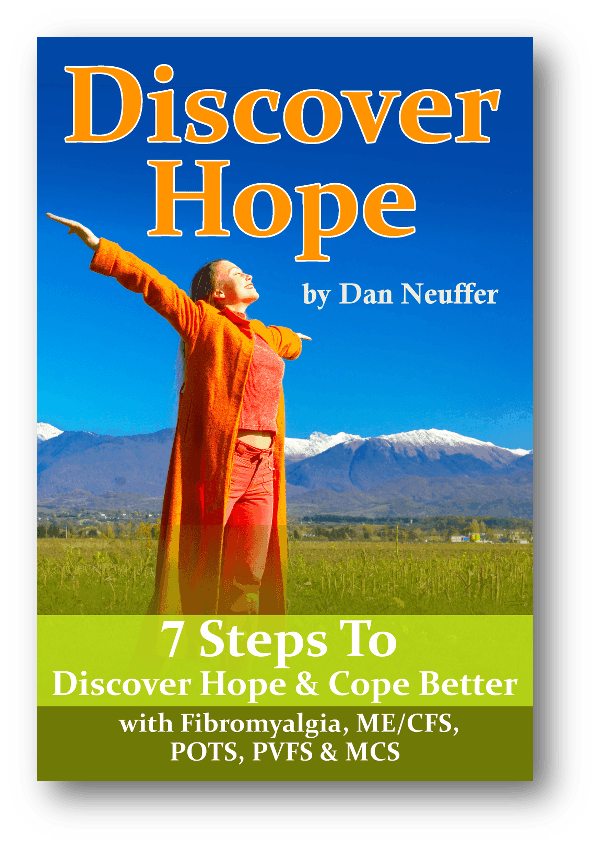
If you would like to learn more about the ANS REWIRE program, check out the 4 free intro lessons or visit the ANS REWIRE website.
Check out some other recent episodes
You can see the full list of episodes HERE.

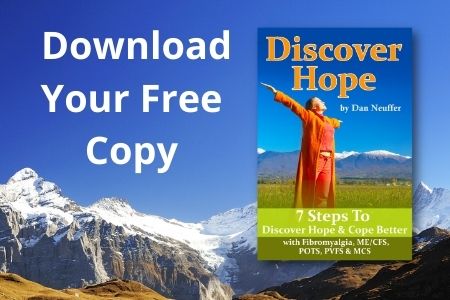
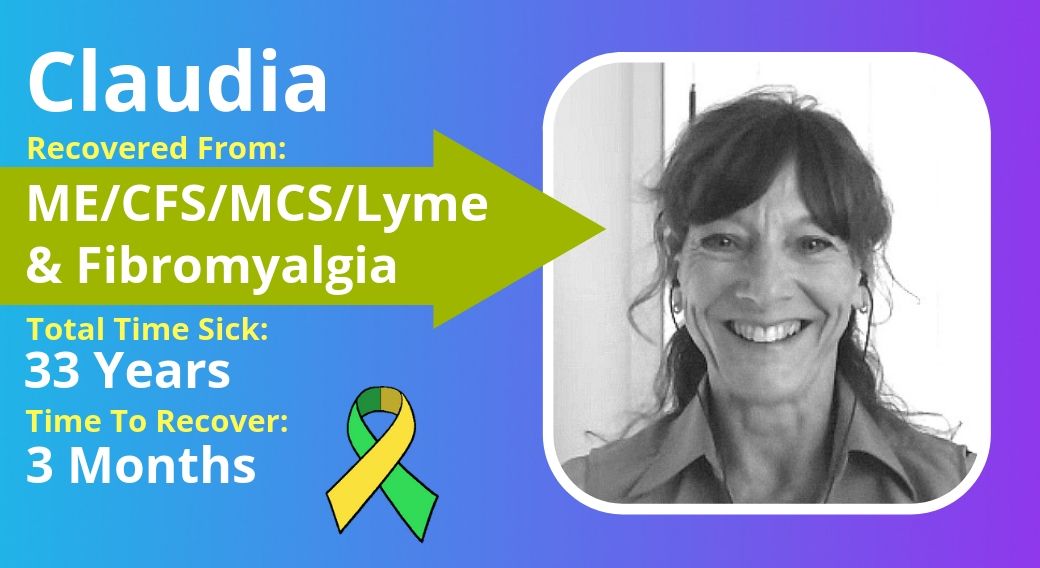
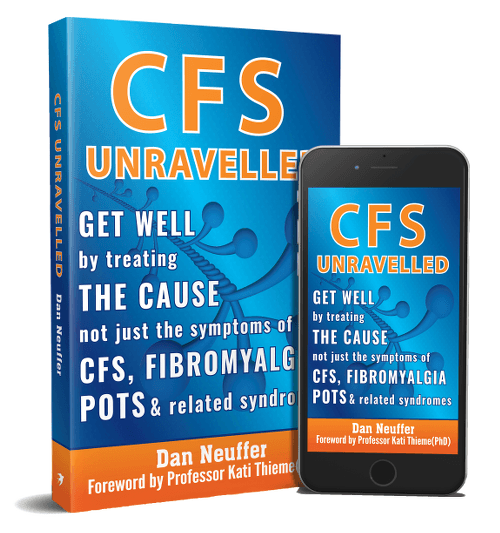
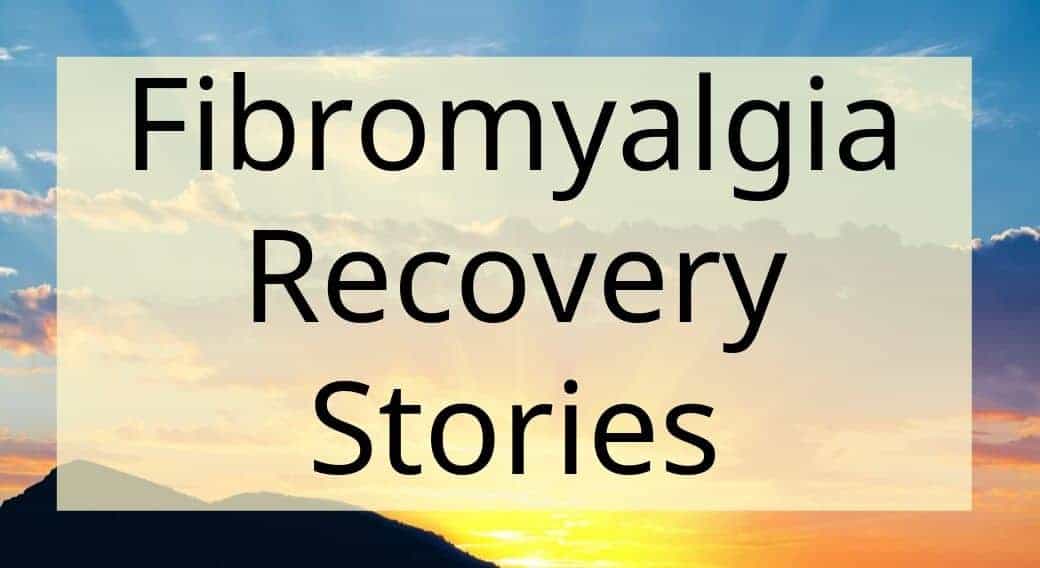
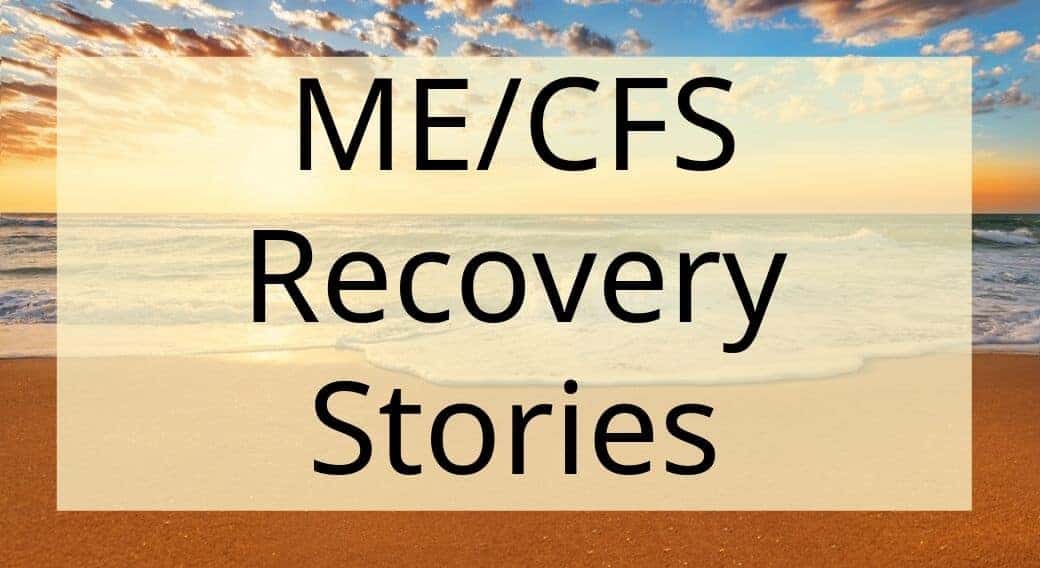
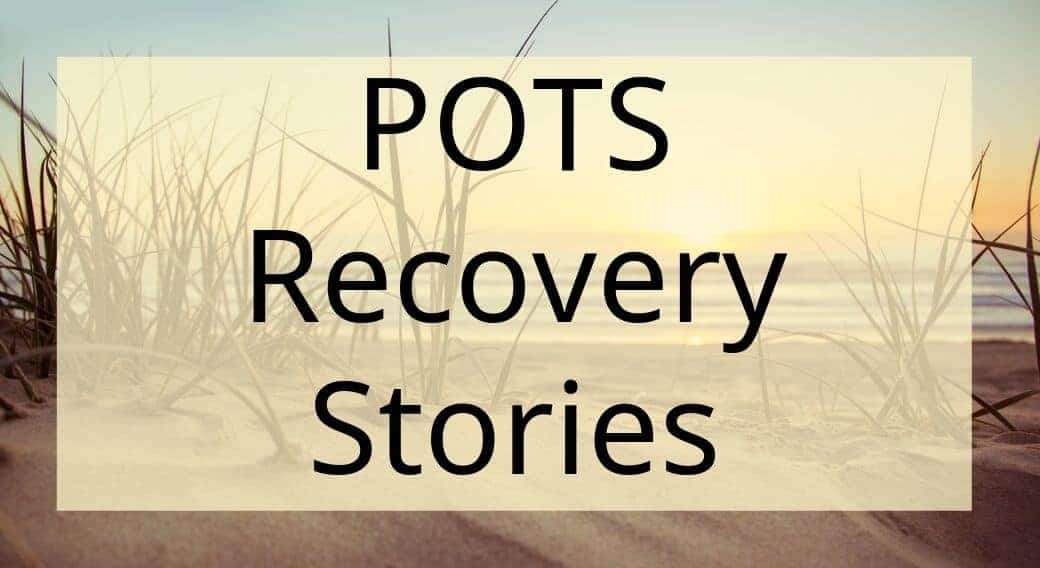
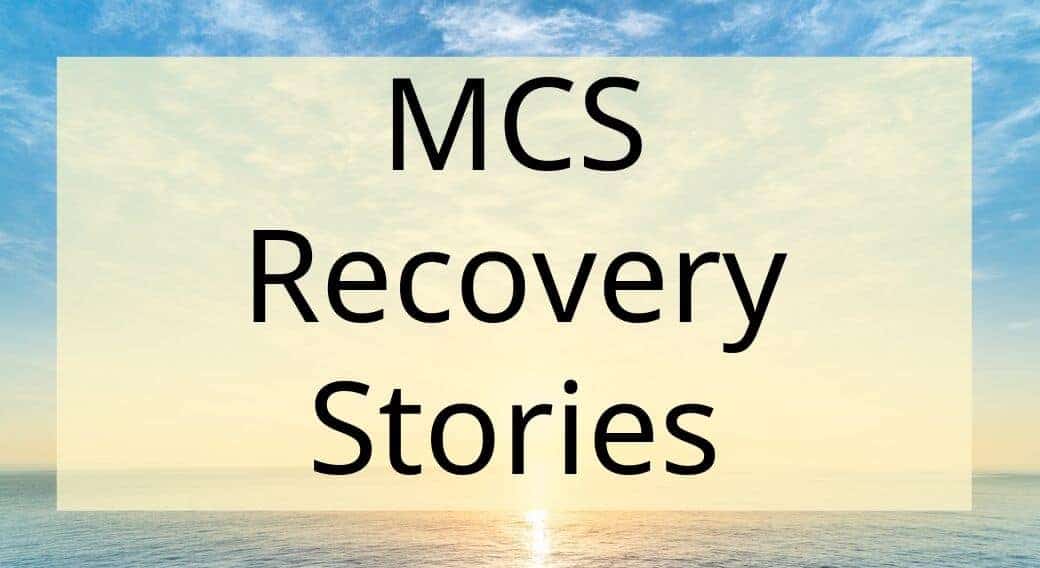

Brilliant! Just what I need to hear today.
Thank you Dan & Claudia – I am doing the ANS programme – roughly 6 months in & seeing improvements – this is very timely for me as was only yesterday talking to my husband about the existential identify issues that are raising for me. Have watched Claudia’s recovery interviews several times which are enormously helpful.
Great stuff, guys. Brilliant.